General Cuong: Include it in textbooks so everyone can clearly understand the nature of the 1979 war.
(Baonghean.vn) - Major General Le Van Cuong - former Director of the Institute for Strategic Studies, Ministry of Public Security answered reporters of Nghe An Newspaper about the 1979 war to defend the Fatherland.
The just war to defend the Fatherland and fight against invasion
PV:Dear Major General, until now there are still different ways of calling the Northern border war on February 17, 1979. Many people believe that this was a war against the Chinese invaders, while others believe that this was a border conflict war. What is your opinion on this issue?
Major General Le Van Cuong: To evaluate any event, we must start with and rely on the reality that has occurred. What is the reality here? That was on February 17, 1979, the Chinese army at that time divided into two wings and crossed the border into Vietnam. The Guangxi army, commanded by Hua Shiyou, included the 41st, 42nd, 43rd, and 53rd army corps; the Yunnan army, commanded by Duong Dac Chi, included the 11th, 13th, and 14th army corps and the 149th division, along with border guards and militia. In this war, the Chinese army used 1.06 million artillery shells, 23.8 thousand tons of ammunition, killed tens of thousands of Vietnamese people; burned down and destroyed the areas they temporarily occupied, and even detonated mines in Pac Po cave - a special historical relic of Vietnam.
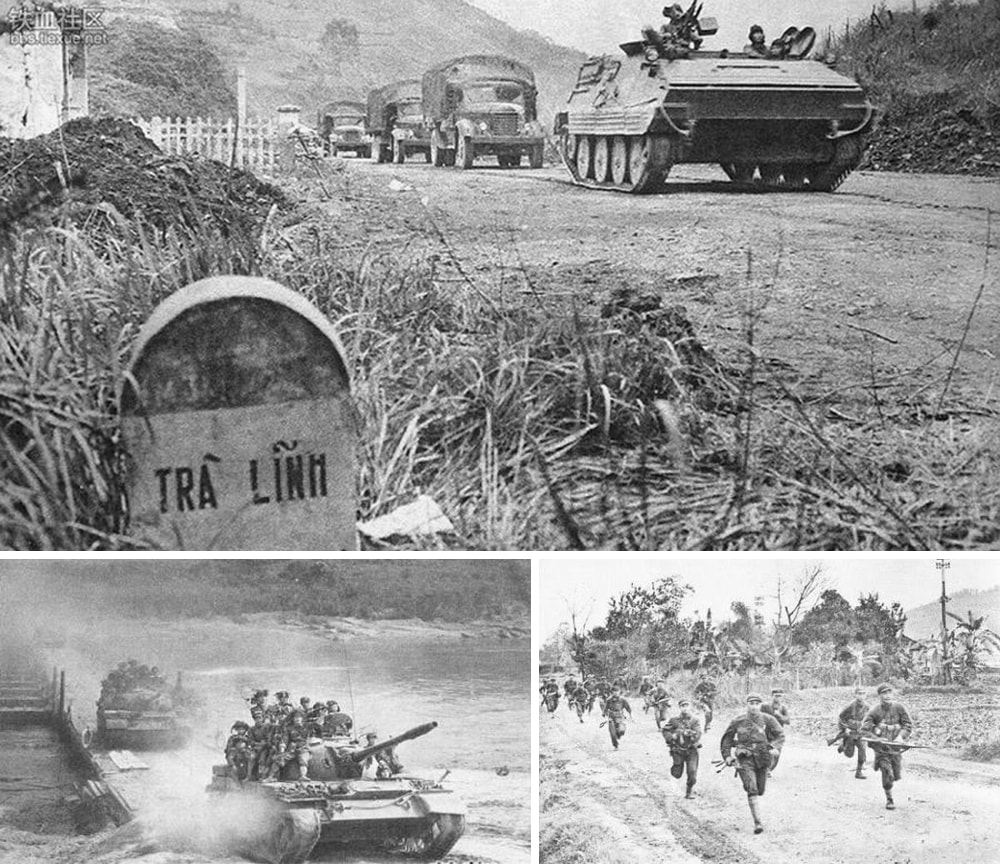 |
| Chinese troops crossed the border into Vietnam in 1979. File photo |
The above actions, it can be said, were more brutal than the French colonialists. It should be noted that, during the war against the French invaders from 1946 to 1954, when they arrived at Pac Po, the French colonialists did not detonate mines in this cave, because both France and later the US considered this a historical and cultural relic of a nation, never to be touched, while the Chinese invaders planted mines in this place.
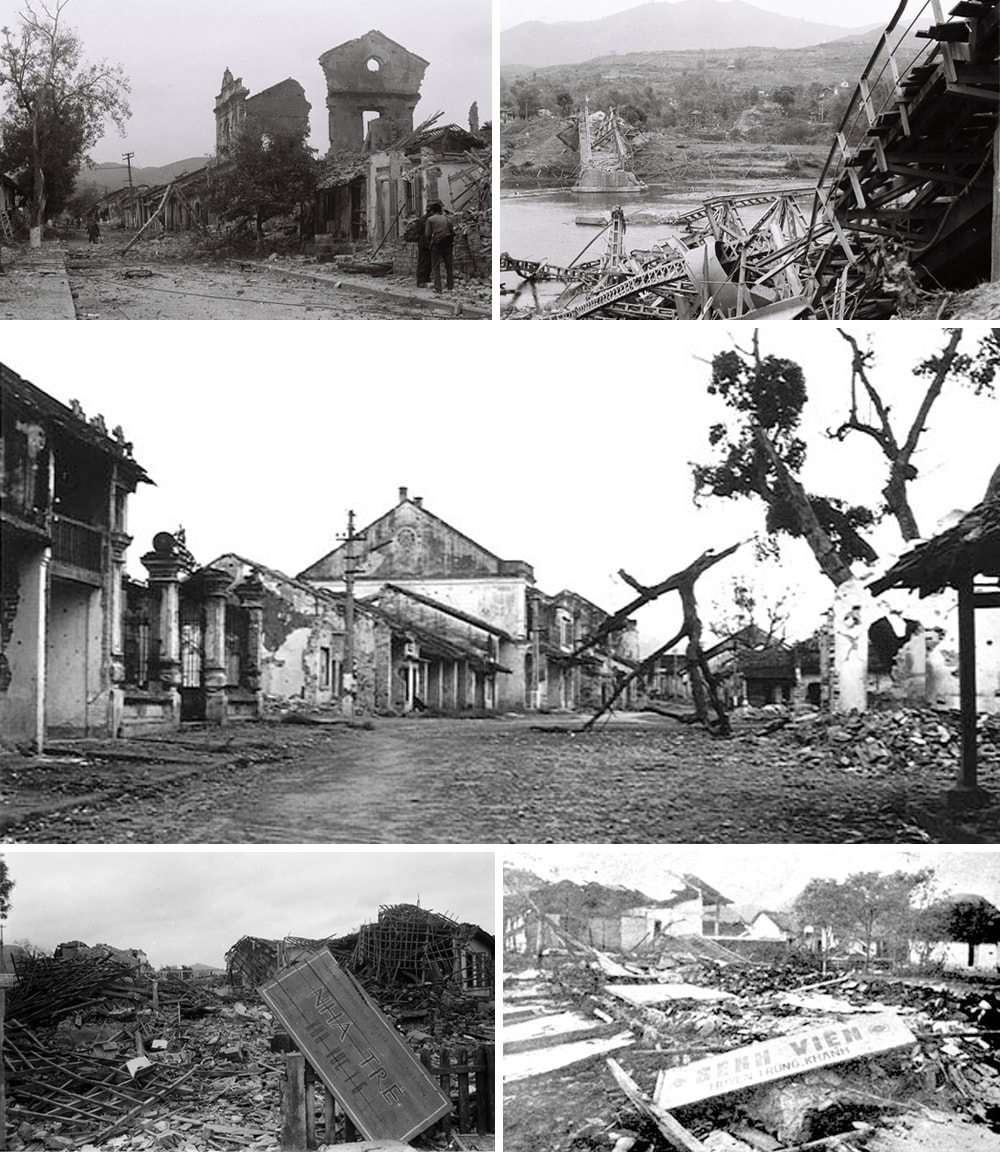 |
| Chinese troops destroyed houses, schools, hospitals, and bridges in the northern provinces. File photo |
At Tong Chuc village, Hung Dao commune, Cao Bang city, the Chinese army at that time brutally killed 40 Vietnamese people at once, most of whom were civilians, women and children.
Based on the encyclopedias of the US, France, Germany, Japan... it cannot be said otherwise: On February 17, 1979, the Chinese army invaded Vietnam along the entire northern border. This was a war of aggression by China and the Vietnamese people rose up to fight the invaders to protect the Fatherland.
This issue must be clearly understood. It cannot be called “Northern Border Conflict”. Encyclopedias of the US, UK, France, Germany... define border conflict completely differently. To say “border conflict” is a fallacy and a lie.
Ambition of great powers
PV:According to the Major General, why did China launch a war of aggression against Vietnam in 1979?
Major General Le Van Cuong:In fact, no one in the world knows the real reason why China launched the war of aggression against Vietnam in 1979. Only Deng Xiaoping and his close senior leaders know this clearly. Unfortunately, they never tell the truth because this is a state secret.
We can only give explanations based on understanding China's foreign policies, as shown through their actions. When studying China's history and the foreign policy of the Chinese Communist Party, I found that there were two reasons why Chinese leaders launched a war of aggression against Vietnam on February 17, 1979: The main and most direct reason was that Vietnam destroyed the Khmer Rouge, saving the Cambodian people from the disaster of genocide, and the Khmer Rouge was China's "offspring".
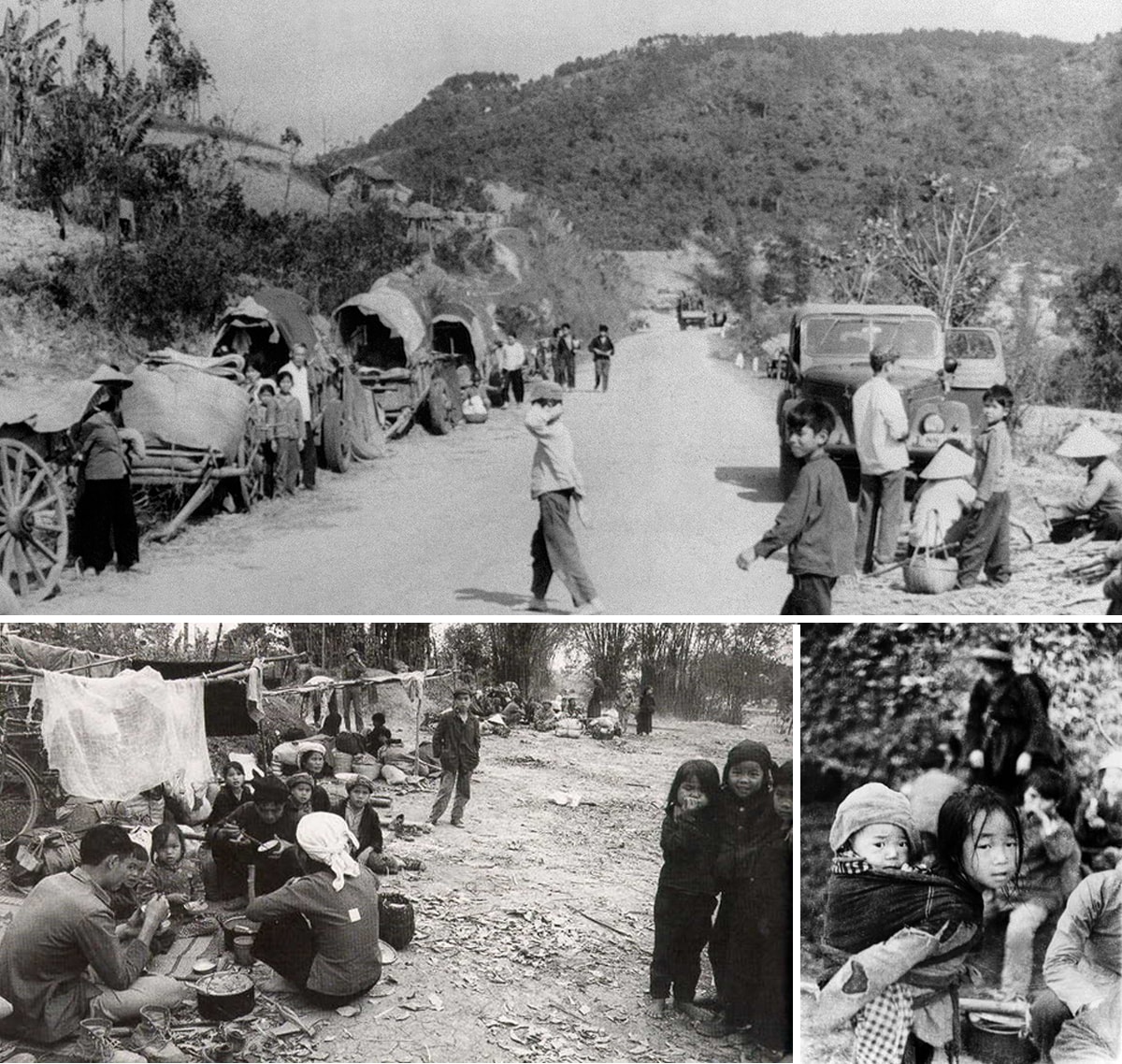 |
| People along the northern border of Lang Son province flee when China sent troops to invade Vietnam. Photo: File |
I recommend that those who are interested should read the memoir “The Khmer Rouge Prisoner” by Prince Sihanouk, published in Paris in 1978. This memoir clearly states how China used the Khmer Rouge as a tool to carry out its expansionist intentions. The Vietnamese people, with great righteousness, sacrificed thousands of people to save Cambodia from the genocide of the Khmer Rouge. Thus, Vietnam dared to “cut off the arm” of the Chinese leaders who were inserted into Cambodia to manipulate ASEAN. They thought that Vietnam had cut off their “right arm” of the Khmer Rouge, so China took revenge on Vietnam.
The second reason, which is also very important, is that China launched the war of aggression against Vietnam to demonstrate China's loyalty to the United States. Let me recall an event, in early January 1979, before launching the war of aggression against Vietnam, Mr. Deng Xiaoping, as the supreme leader of China, visited the United States. In the Oval Office of the White House, in front of US President Carter, Mr. Deng Xiaoping told the US President: "China accepts the responsibility of Eastern NATO, and proposes that the United States cooperate closely with China to defeat the great-grandfather Russia-Soviet Union and the little-grandfather Vietnam." Thus, Vietnam became the "scapegoat" for China to normalize relations with the United States. To prove that China is not an ally of the Soviet Union nor an ally of Vietnam.
After leaving the US, Deng Xiaoping launched the 1979 war of aggression against Vietnam.
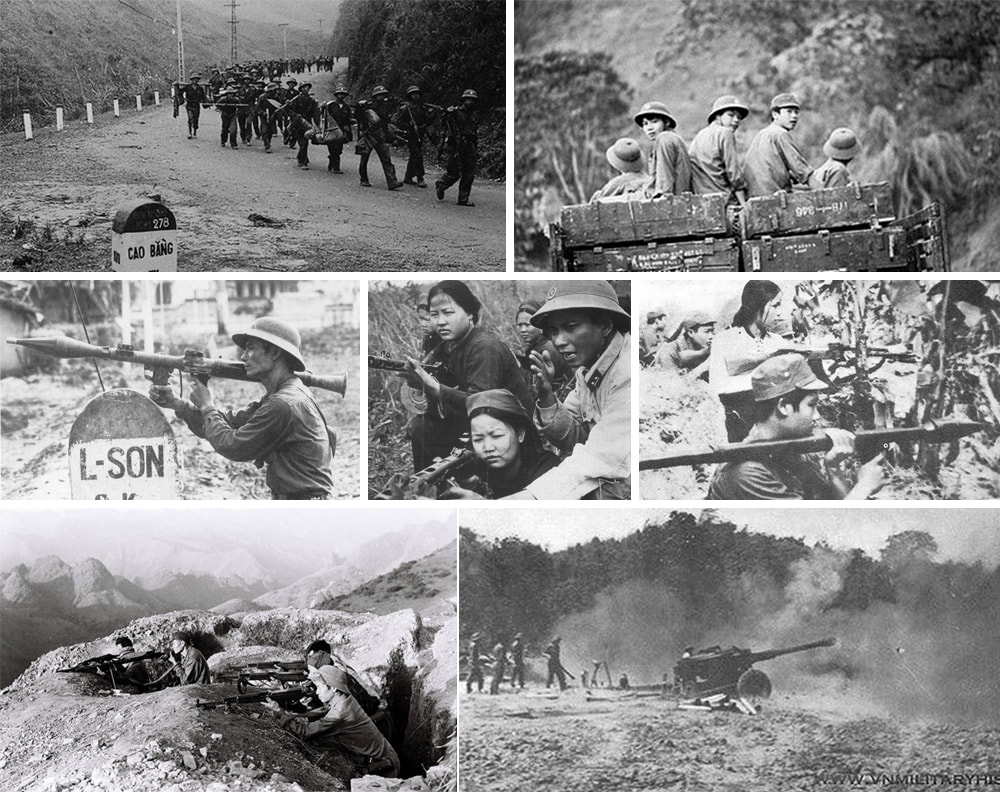 |
| Vietnamese armed forces fighting on the northern fronts. File photo |
Ridiculous slander and deception
PV:According to Major General,Looking back 40 years, how should we understand China's perspective on the 1979 war of aggression against Vietnam?
Major General Le Van Cuong:While we rarely mention the war to defend the Fatherland on February 17, 1979, in China every year, especially on the occasion of even years 1994, 1999, 2004, 2009... there have been hundreds of articles with titles such as: "The glorious war of the Chinese Liberation Army against the invading Vietnamese army", "The counter-attack against the invading Vietnamese army", "On February 17, 1979, the Vietnamese army crossed the border to invade Chinese territory", "The heroic fighting example of the Chinese Liberation Army in the counter-attack against the invading Vietnamese army"... That is a lie!
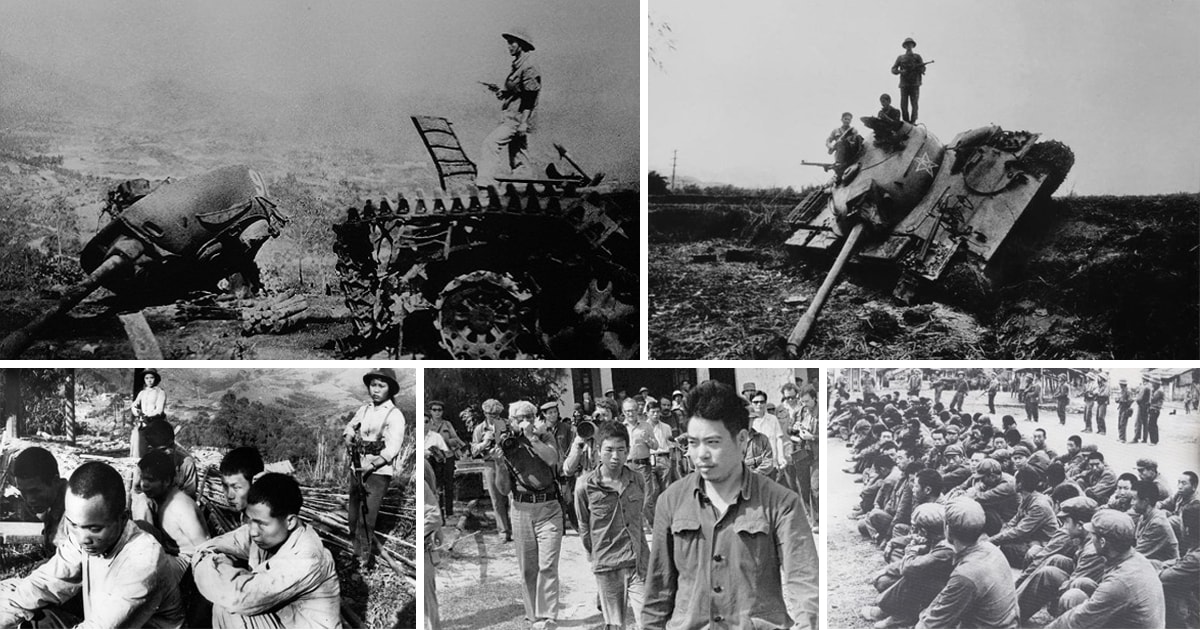 |
| Chinese tanks were shot down by Vietnamese troops during the border war and Chinese prisoners of war were captured. File photo |
For the past 40 years, according to incomplete statistics, there have been nearly 1 million articles in Chinese newspapers accusing Vietnam of invading China, and China only reacted in self-defense.
As late as 2010, 90% of Chinese people still believed that on February 17, 1979, the People's Army of Vietnam invaded China. This was a ridiculous, blatant lie by China about this war!
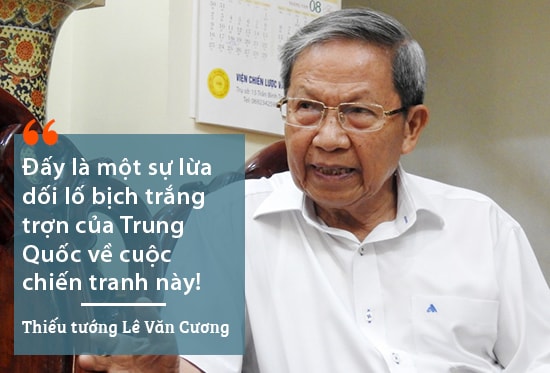 |
Protecting territorial integrity and national interests is paramount.
PV:As a researcher, can the Major General draw lessons from the Northern border war on February 17, 1979?
Major General Le Van Cuong: Since the Northern border war on February 17, 1979, in my opinion, there are several issues that Vietnamese people need to have a clear, coherent, and correct awareness of.
Firstly, it is the perception of China through the war. We should remember that, in the entire legacy left to posterity, Marx, Engels and Lenin, not a single word mentioned about socialist countries fighting each other. Therefore, China's actions in the war of aggression against Vietnam on February 17, 1979, were not the actions of a socialist country... This is the first thing that we need to clearly perceive. Therefore, in our policy towards China, we need to put the protection of territorial sovereignty and national interests as paramount, in order to have a proper policy of behavior, without ambiguity or misunderstanding in this matter.
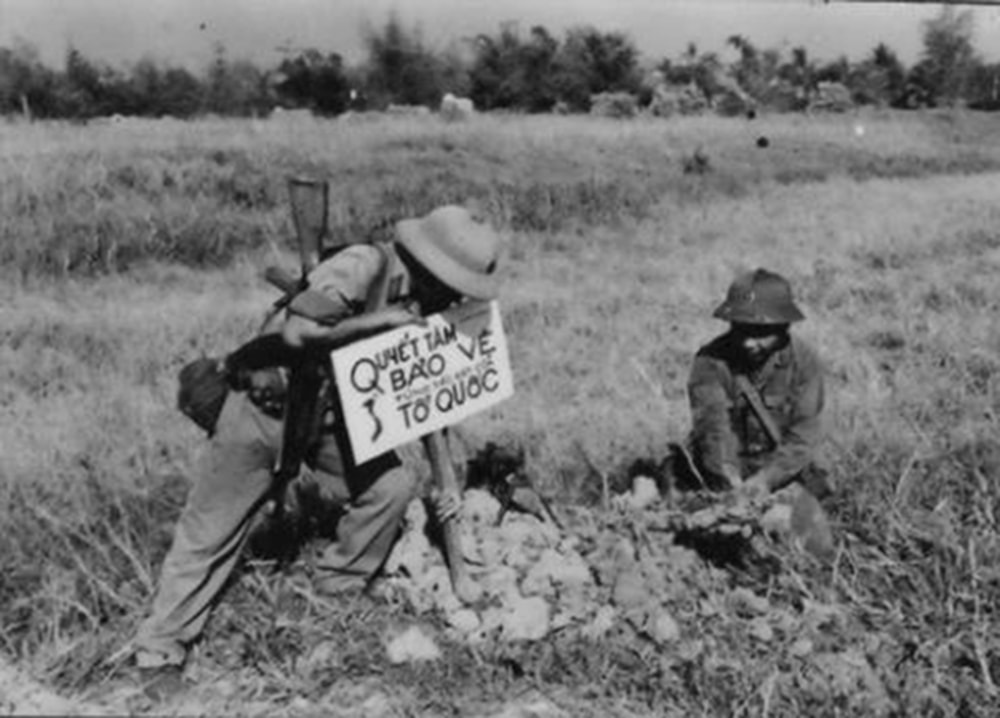 |
| Protecting territorial integrity and national interests is paramount. Photo courtesy |
The second problem was that in 1979, Vietnam was in a difficult situation, its foreign relations were almost isolated, the Soviet Union was a friend but far away, the US and other reactionary forces surrounded it with embargoes and sanctions. In the context of Vietnam being almost completely isolated, China launched a war of aggression against Vietnam.
Therefore, the second lesson is that Vietnam must never let the country fall into isolation. If isolated in foreign affairs, it will become a delicious bait for outside forces to spy on and invade. That is why in the 90s of the last century, our Party proposed the policy of Vietnam being a friend of the international community, with a policy of "multilateralization and diversification" of international relations. Vietnam participates in all international institutions, is a member of international organizations such as WTO, WB...
We design comprehensive partnerships, strategic partnerships with all major powers in the world such as the United States, Russia, Japan, England, France... This is a completely correct and wise policy of the Communist Party of Vietnam, combining national strength with the strength of the times, then we create a strength that no one dares to invade Vietnam.
The third lesson is national unity. Our people have had half a century of fighting against foreign invaders. In the 1979 border war, the Vietnamese people were once again united, under the leadership of the Party, millions of people as one, forming a solid steel rampart, which is why we were able to drive the Chinese invaders out of our country... More than ever, we need to cultivate social consensus, creating the invincible strength of Vietnam.
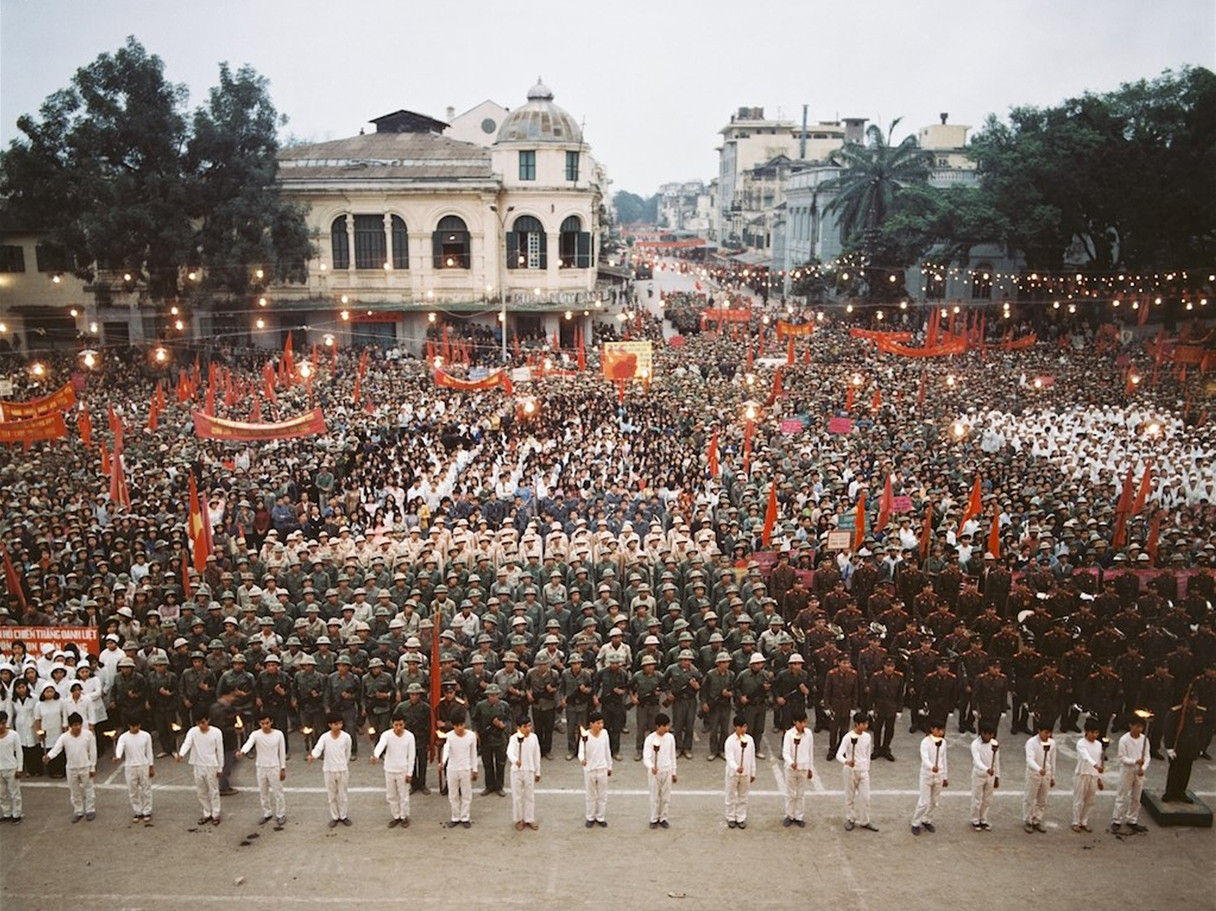 |
| Rally to celebrate the victory of the 1979 Northern Border War. Photo taken in front of the Hanoi Opera House. Photo courtesy |
Need to study carefully and thoroughly about the 1979 war
PV:From the reality of this war, can you suggest some issues we need to continue working on?
Major General Le Van Cuong:In my opinion, we need to include the 1979 war against invaders in textbooks at all levels of secondary education and university education systems. We must not turn our backs on and forget those who sacrificed their lives for the Fatherland. A famous writer of ancient Rome once said: “History is the evidence of the times, the flame of truth, the life of memory, the teacher of life....". A Russian writer also said: "Life will lose all meaning if the younger generation does not know the work of previous generations." Therefore, we must include this war against invaders in textbooks.
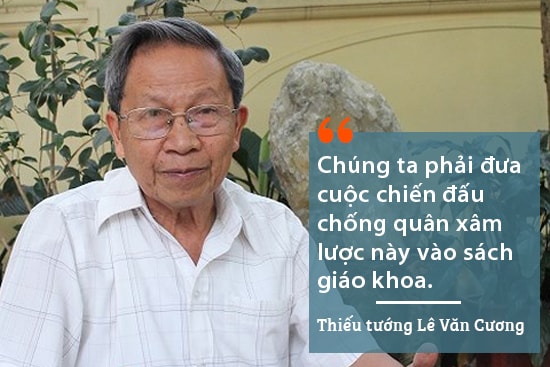 |
Some people think that doing so affects Vietnam-China relations. I think that is a fallacy.
Remember, in Japanese history textbooks there is a bold chapter about the crimes of America when America dropped two atomic bombs on Japan. In British and French textbooks there is a bold chapter about the crimes of Nazi Germany. But now America and Japan are allies, England, France and Germany are still allies.
Whoever said that including the 1979 war in textbooks would affect the Vietnam-China relationship is a fallacy. History is history, no one can cover the sun with their hand. We do not incite nationalism, but we have the responsibility to make future generations understand the nature of the 1979 war. Every country must do the same!
Besides, we also need to rebuild the steles and relief walls to record the tenacious fighting, brave sacrifices, and feats of our compatriots and soldiers who sacrificed their lives to protect the sacred land of the Fatherland.
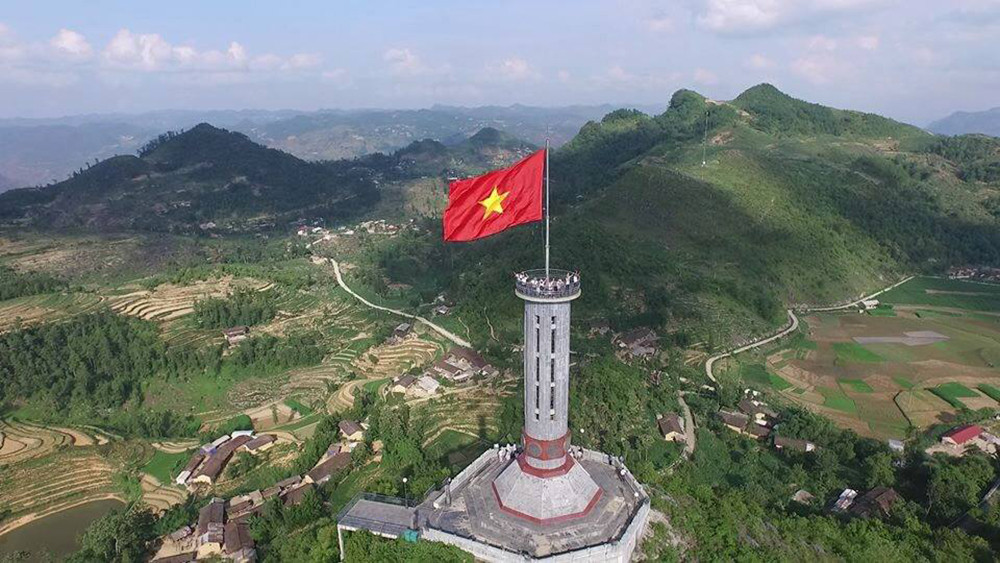 |
| Lung Cu flagpole (Ha Giang). Photo archive |
Every year, especially in even-numbered years, there should be activities appropriate to the scale, security and political situation at home and abroad, regarding the 1979 war, such as scientific conferences, rallies, meetings with historical witnesses, and the press should also have many articles on this issue...
It is necessary to conduct in-depth and comprehensive research on the 1979 war to defend the Fatherland in order to proactively deal with all future uncertainties. We must thoroughly research history in order to have the right strategy and proactively deal with all future uncertainties. This is extremely necessary. We have thoroughly researched the glorious feats of arms of the Vietnamese people in the history of the Trung Sisters, Dinh, Le, Ly Tran... to Dien Bien Phu in 1954, Spring 1975. All of the above-mentioned battles have been summarized, evaluated, and included in textbooks. There are tens of thousands of articles and specialized research works on these feats. Therefore, I suggest that the 1979 war against the Chinese invaders also needs to be thoroughly researched.
PV:Thank you, General!
